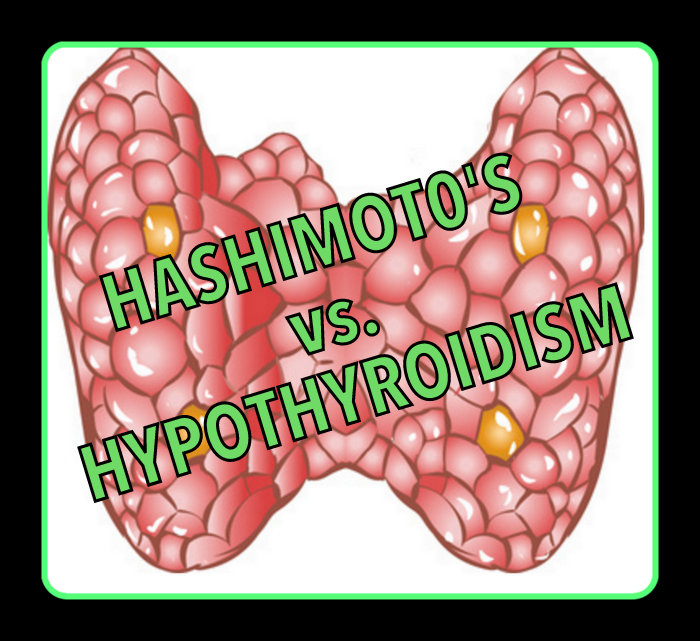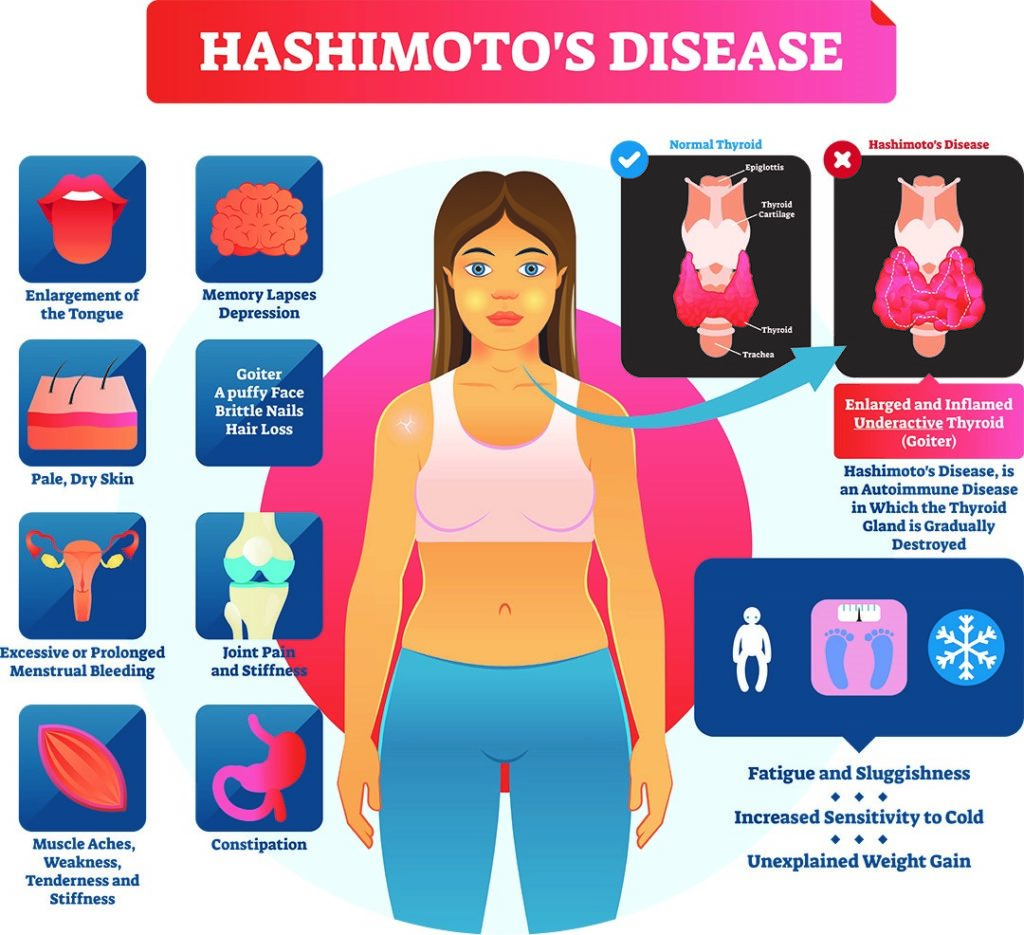Hypothyroidism and Hashimoto’s Disease
Hypothyroidism and Hashimoto’s disease are health problems that are more prominent among women. This health issue poses a great challenge to the quality of life of the patient. Hypothyroidism is an offshoot of Hashimoto’s disease.
 Hashimoto’s disease occurs in the body as a result of an attack on the thyroid gland by the body’s immune system, leading to chronic inflammation. Hypothyroidism is a complication that occurs due to inflammation that comes with Hashimoto’s disease, in which the thyroid gland does not produce sufficient hormones needed for certain body functions. Triiodothyronine and thyroxine, the two hormones produced by the thyroid, affect functions in the body such as breathing, brain development, menstruation, muscle strength, skin moisture, body weight and metabolism. When these hormones are insufficient in the body, it makes the patients experience unpleasant symptoms.
Hashimoto’s disease occurs in the body as a result of an attack on the thyroid gland by the body’s immune system, leading to chronic inflammation. Hypothyroidism is a complication that occurs due to inflammation that comes with Hashimoto’s disease, in which the thyroid gland does not produce sufficient hormones needed for certain body functions. Triiodothyronine and thyroxine, the two hormones produced by the thyroid, affect functions in the body such as breathing, brain development, menstruation, muscle strength, skin moisture, body weight and metabolism. When these hormones are insufficient in the body, it makes the patients experience unpleasant symptoms.
Symptoms of Hypothyroidism and Hashimoto’s Disease
Symptoms of hypothyroidism include dry, thinning hair; dry skin; heavy menstrual flow or irregular periods; constipation; depression; a hoarse voice; excessive or prolonged menstrual bleeding (menorrhagia); and muscle aches and tenderness and stiffness, especially in your shoulders and hips.
Other symptoms include fatigue and sluggishness, increased sensitivity to cold, puffy face, pain and stiffness in your joints and swelling in your knees or the small joints in your hands and feet, pale skin, weight gain—easily or unexpectedly and muscle weakness, especially in your lower extremities.
Causes of Hypothyroidism and Hashimoto’s Disease
The cause of Hashimoto’s disease is widely unknown. Studies show that Hashimoto’s thyroiditis occurrence is common in certain families that have other autoimmune conditions like celiac disease and type 1 diabetes.
Another common feature of the disease is the fact that it is more common in adults, especially women, than men. Sample blood taken from patients with this condition shows an increased number of antibodies combating thyroperoxidase and thyroglobulin, which are thyroid proteins.
However, there are certain causative factors that may be responsible for the disease
- Stress—stress causes adrenal fatigue
- Glutamine, Zinc and vitamin D depletion—these substances are required for keeping the intestinal lining intact and proper gut barrier function. Stress places demand on these materials to be used in other parts of the body and deficient in their primary duties.
- Fungal Infections—Fungi such as Candida are responsible for intestinal permeability, known as leaky gut syndrome.
Other factors include gluten sensitivity and cross-reactive proteins, parasites and small intestinal bacterial overgrowth (SIBO).
Infections that can cause Hashimoto’s disease include Hepatitis C Virus, Cytomegalovirus, Borrelia burgdorferi, Staphylococcus (Staph) infections, Streptococcal (Strep) infections, HTLV-1, Herpes 1 (oral herpes, which are cold sores or HSV-1), Herpes 2 (genital herpes or HSV-2), Parvovirus B-19, Rubeola (measles), Coxsackie B virus, Q fever, Influenza, HIV, Rickettsia, Human Herpes 6 (Human Herpesvirus 6 or HHV-6, which is the virus that most commonly causes roseola) and Rubella (German measles).
Homeopathic Remedies for Treating Hashimoto’s Disease
There are quite a few treatments for hypothyroidism and Hashimoto’s disease. Below are some of the prominent treatments available.
Calcarea Carbonica
This remedy treats weakness of bone, controls weight gain and corrects sluggishness. It helps brain development, especially in children. It is an effective treatment that treats hypothyroidism, nervousness, fatigue, depression and sluggish tendencies.
Bromium
This remedy is useful for the treatment of both hypothyroidism and hyperthyroidism, especially in hyperactive patients.
Carcinosin
Carcinosin is used for people with a family history of autoimmune disease and cancer. Such a patient has pale skin and is worn out due to stress.
Lapis Album
This is a calcium salt used to treat glandular issues related to tumor growth, especially goiters.
Other common remedies include Thyroidinum, Spongia Tosta, Lachesis and Fucus Vesiculosus
Acupuncture for Hypothyroidism and Hashimoto’s Disease
Acupuncture treatment of hypothyroidism and Hashimoto’s disease involves Traditional Chinese Medicine (TCM) diagnosis to arrive at the pattern of the disease in the individual. This pattern will determine the type of treatment appropriate for the person and not a general treatment as obtained in Western medicine.
The symptoms shown will fall into a particular pattern called deficiency of yang syndrome, and this leads to cold signs.
Eight extraordinary energy channels are used to assess the constitutional strength of the patients. Especially in women, two vessels, the Chong and the Ren, are used to treat hypothyroidism and Hashimoto’s disease since they are more prominent for Yin individuals (females) than for Yang (males).
A combination of acupuncture and homeopathic medicine is highly efficient in the endocrine clinic. Most of the patients that started treatment in the very beginning of the illness get cured and never need any hormonal substitution therapy.
Holistic Treatment in Philadelphia
At the Philadelphia Holistic Clinic, Dr. Tsan and Associates demonstrated a great response for combined treatment. To make an appointment and discuss your best treatment options contact our center or use our automatic scheduling system.

You must be logged in to post a comment.